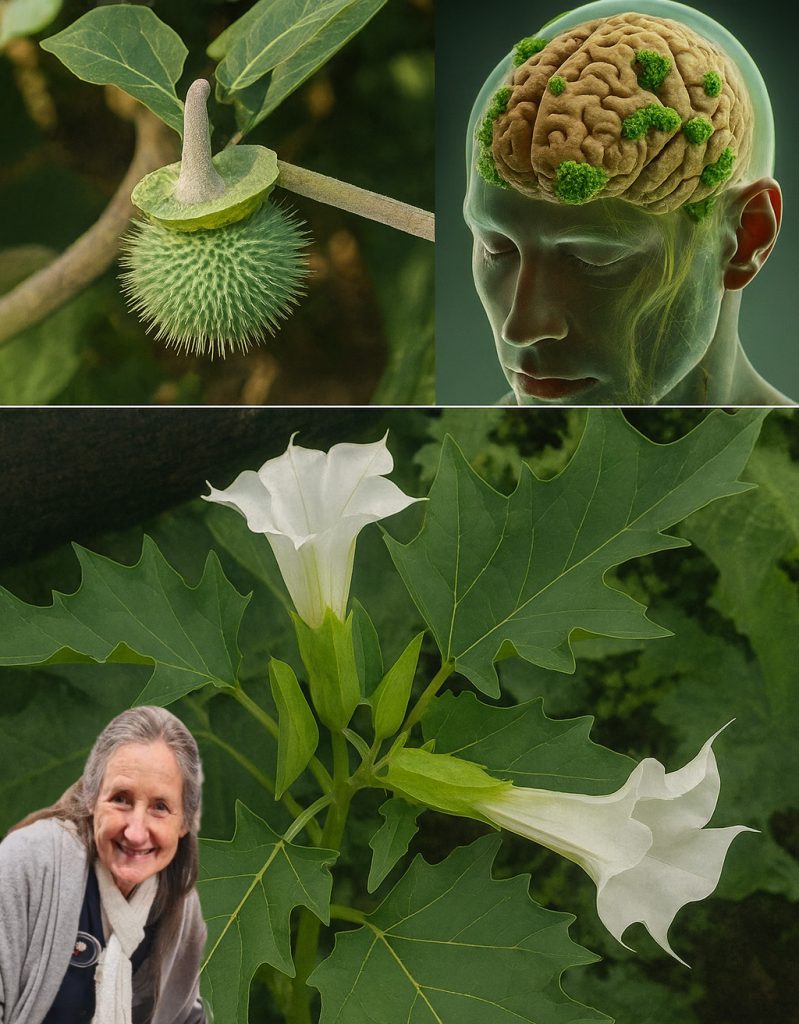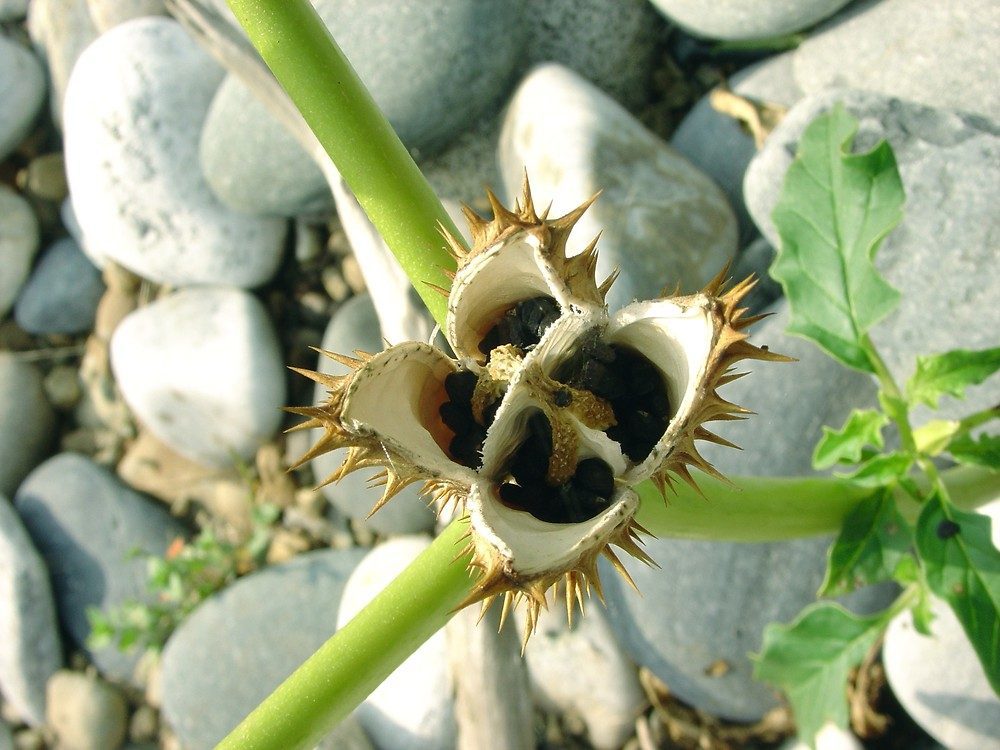Datura stramonium, commonly known as Jimson Weed or Thornapple, is an aggressively growing plant that is recognized for its spectacular, trumpet-shaped flowers but is infamous for its extreme toxicity. It truly is a beautiful trap, posing a significant risk in gardens and fields.

The Dangerous Beauty
- Appearance: The plant is a sprawling annual herb that produces large, upright, funnel-shaped flowers, typically white or pale violet, which are highly fragrant, especially at night. Its fruit is a distinctive, round, spiky capsule, earning it the name Thornapple.
- The Trap: The allure lies in these exotic-looking flowers and the unique, spiky seed capsules, which can attract children or lead to misidentification by adults looking for edible plants.
Extreme Toxicity and Health Risks

All parts of the Datura stramonium plant contain dangerously high levels of potent toxic compounds called tropane alkaloids, including atropine, hyoscyamine, and scopolamine. These alkaloids are anticholinergic agents that disrupt the central and peripheral nervous systems.
Risk of Poisoning
The risk of severe illness, coma, or death is extremely high if any part of the plant is ingested. The seeds contain the highest concentration of these toxins. Poisoning can occur from:
- Accidental Ingestion: Children eating the seeds from the spiky capsules or mistakenly consuming it as a culinary herb.
- Misuse: Individuals intentionally using the plant for its hallucinogenic/psychoactive effects, unaware of the lethal variability in toxin concentration.
- Contamination: Livestock poisoning has been reported when parts of the plant contaminate hay or grains.
Symptoms of Datura Poisoning (Anticholinergic Syndrome)
The severe effects often manifest within an hour of ingestion and can be summarized by the classic saying:

- “Hot as a hare” (High fever/body temperature)
- “Blind as a bat” (Severely dilated pupils/impaired vision)
- “Dry as a bone” (Extreme dry mouth and skin, difficulty swallowing)
- “Red as a beet” (Flushed skin)
- “Mad as a hatter” (Confusion, agitation, delirium, vivid hallucinations, and psychosis)
In severe cases, poisoning can lead to seizures, respiratory failure, cardiovascular collapse, coma, and death.
Safety in Your Garden
If you find Datura stramonium growing in your garden or yard, especially where children or pets play, it is strongly advised to remove it:
- Protective Gear: Always wear gloves when handling the plant, as touching the foliage can cause skin irritation or mild absorption of the alkaloids.
- Complete Removal: Uproot the entire plant, including the taproot, to prevent regrowth.
- Safe Disposal: Place the pulled plant material and all spiky seed capsules in a sealed plastic bag and dispose of it in municipal waste. Do not put it in a compost heap, as the seeds are extremely long-lived and the compost heat is unlikely to destroy them.
🚨 Medical Emergency Warning:
If you suspect that a child, pet, or adult has ingested any part of the Datura stramonium plant, seek immediate medical attention or call emergency services right away. Take a sample of the plant with you for proper identification.









